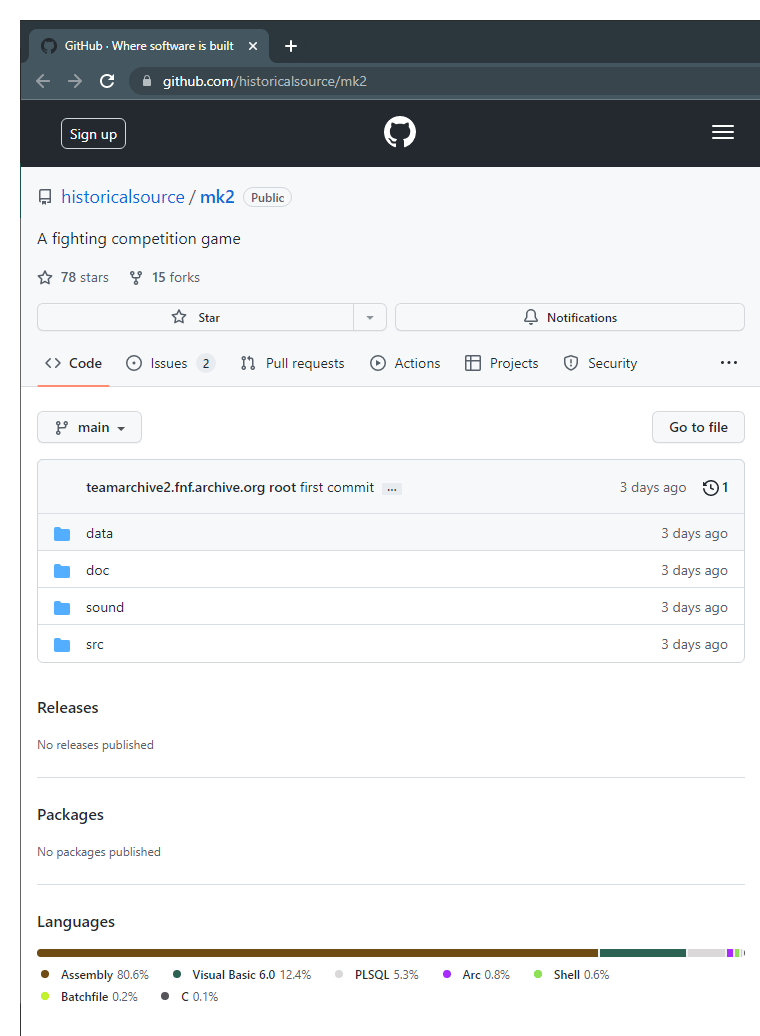Mortal Kombat is a popular series of fighting games created by Midway Games, and has become one of the most renowned fighting video games ever.
And Mortal Kombat II, which is the second main installment in the franchise and a sequel to 1992's Mortal Kombat, significantly improved the gameplay by expanding its character roster, to include iconic characters, like Kitana, Mileena, Kung Lao, Noob Saibot. And most notably, it introduces more varied finishing moves (more Fatalities and new finishers, like Friendship and Babality).
Since day one it was introduced in 1993, Mortal Kombat II received huge success and was acclaimed by most critics.
Mortal Kombat II's success was the major motivation for Midway Games to create the game's successor, and to continue the game's depiction of graphic violence.
And this time, thirty years later, its source code has been leaked.

But it's worth noting that the leak purportedly revealed only unused artwork and an alternative storyline for the iconic arcade game.
The source code was posted to a GitHub repository by the user account ‘Historical Source,’ which has leaked many other game assets in the past.
While the repository had a notice that said the files within it infringe the intellectual property rights of "The Mortal Kombat series of video games, and all names, characters, logos and original source code," fans didn't care.
The leak was met with excitement by gaming history fans.
It didn't take long until developers fiddled with the codes to find game artifacts that never see the light of day.
Among others, the tidbits include altered names for several of its fighters, tons of background sprites for objects found in certain stages, as well as sprites in varying degrees of quality for pretty much every character in the game.
It also contains animations that if used, should have drastically transformed the way certain characters play.
Warner Bros. Discovery, the rightsholder, was quick to respond.
Its employee sent a DMCA notice to GitHub, asking the developer platform to remove the leaked files.
GitHub complies.

The original Mortal Kombat was developed as a reaction to the popular Capcom fighting game Street Fighter II.
It didn't take long until gamers around the world acknowledged how different Mortal Kombat is, and how it's approach makes it unique.
The original Mortal Kombat was released in 1992, and has since inspired many other titles that came after it.
Mortal Kombat, alongside games like Doom and Night Trap, were the ones that triggered the formation of the Entertainment Software Rating Board, or ESRB, due to outcry over its depictions of violence.
Regardless, Mortal Kombat managed to successfully blend realism with violence, and gamers loved that fact.
And Mortal Kombat II was way more popular than the original one.
When the source code was still on GitHub, developers have tweaked the game, and one even swapped the three decades-old digitized sprites with more modern ones, and make the game's graphics a lot sharper and crisp.
The swift removal of the source code was a disappointment to classic games fans.
Historical Source as the original uploader, was also displeased. The uploader created another repository on GitHub shortly after the takedown.
The repository that is titled "not-mk2," does not repost the removed leak.
Instead, Historical Source includes a copy of a Wikipedia entry, discussing complaints of gender discrimination and a toxic workplace at NetherRealm.
These complaints first emerged three years ago following the release of Mortal Kombat 11.
It's worth noting that Mortal Kombat II's massive success couldn't prevent Midway Games from filing a bankruptcy.
Midway Games which was experiencing financial difficulties, sold the franchise, which include all of the game's assets and copyrights, to Warner Bros. Discovery.
After acquiring it, Warner Bros. Discovery operate the franchise under the subsidiary NetherRealm Studios.
